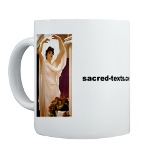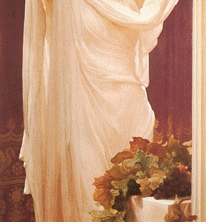
|
Christianity Apocrypha Judaism Islam Hypertext Qur'an Woman's Bible Buy books: The Bible
The Bible is considered a sacred text by three major world religions, Judaism, Christianity, and Islam. Many devout believers consider it to be the literal truth. Others treat it with great respect, but believe that it was written by human beings and, as such is a complex, often contradictory document. Modern scholars believe that the Hebrew Bible, or Tanakh, was composed by four or five writers between 1000 to 400 BCE based on much older traditions. The New Testament was composed by a variety of writers between 60 to 110 CE. The contents of the New Testament were formalized by Athanasius of Alexandria in 367 CE, and finally canonized in 382 CE. There are many disagreements about the order and composition of the Bible between various religions and sects, some of which are doctrinal in nature. The sequence of books in this hypertext should not be construed as endorsing any particular religion. Important note: to view the Greek and Hebrew sections of this part of the site you must have Unicode support correctly set up in your browser. Special instructions about getting Hebrew Unicode running properly can be found here. This page links together all of the Bible resources at sacred-texts. The table below has links to the following texts:
Features This is a list of books and other resources at sacred-texts related to the Bible, Apocrypha, and Biblical scholarship. edited by Rutherford H. Platt, Jr. [1926] A collection of OT apocrypha and pseudepigrapha. edited by Rutherford H. Platt, Jr. [1926] A collection of NT apocrypha and pseudepigrapha.  The Chronicles of Jerahmeel
The Chronicles of Jerahmeeltr. by Moses Gaster [1899] Biblical folklore, preserved from antiquity. tr. by M. R. James [1917] tr. by R.H. Charles [1917] tr. by Richard Laurence [1917] tr. by R.H. Charles [1917] by Hermann Gunkel [1901] by Thomas Jefferson [1902] Thomas Jefferson remixes the Gospels.  The Holy Scriptures
The Holy Scripturesby the Jewish Publication Society [1917] The ongoing project to create an open-source JPS etext lives here. by Arthur Hinds, int. by Norman Vincent Peale [1927] Read everything Jesus says in the New Testament in one sitting. by Ernest Sutherland Bates [1937] An introduction to the historical evolution of the Bible. The Hypertext Bible |
| On Twitter, follow 'sacredtexts.' |
| Sacred-texts on Facebook |
|
|
|
|
|
|
 Buy a mug. Support this site. |





